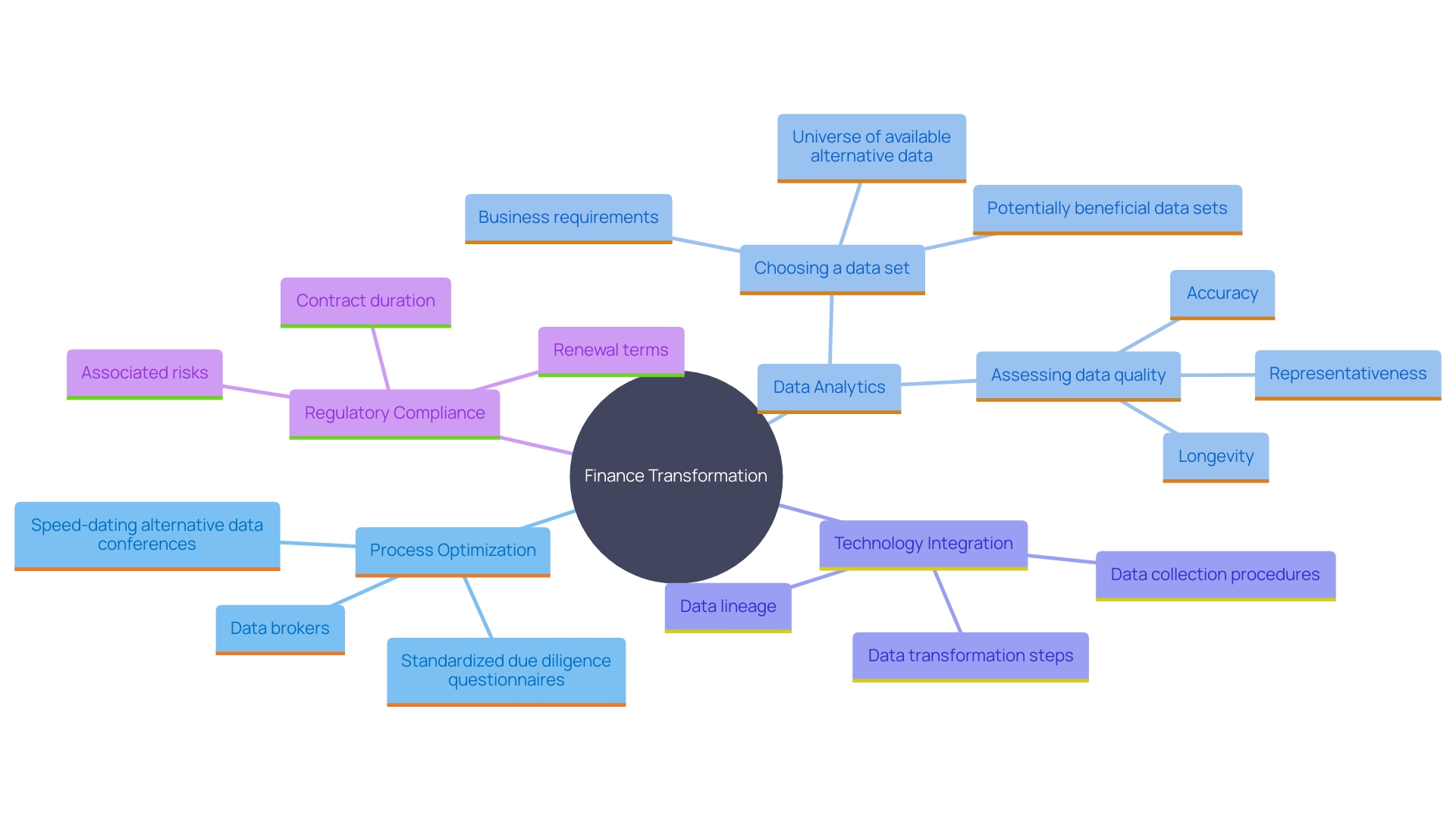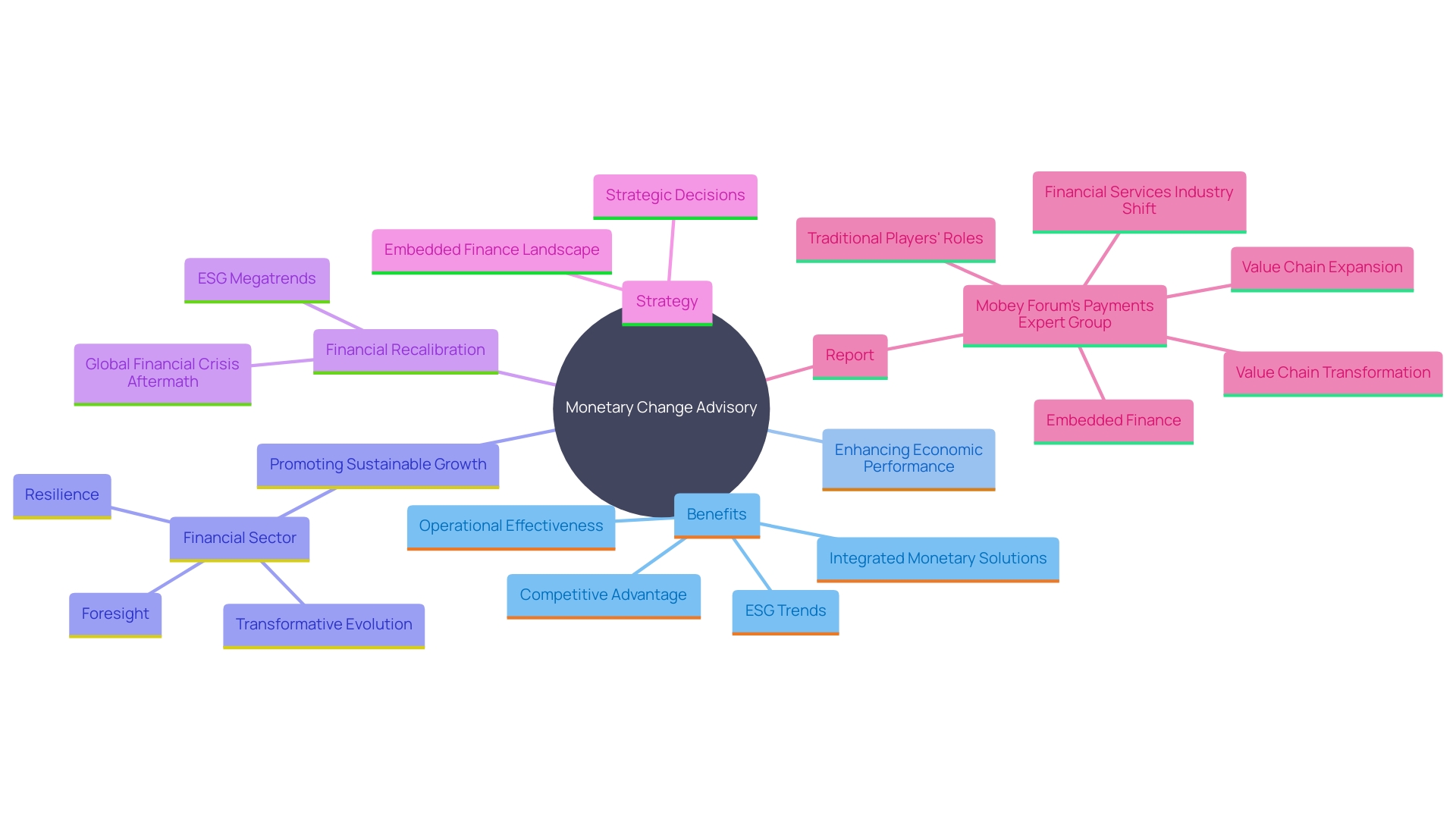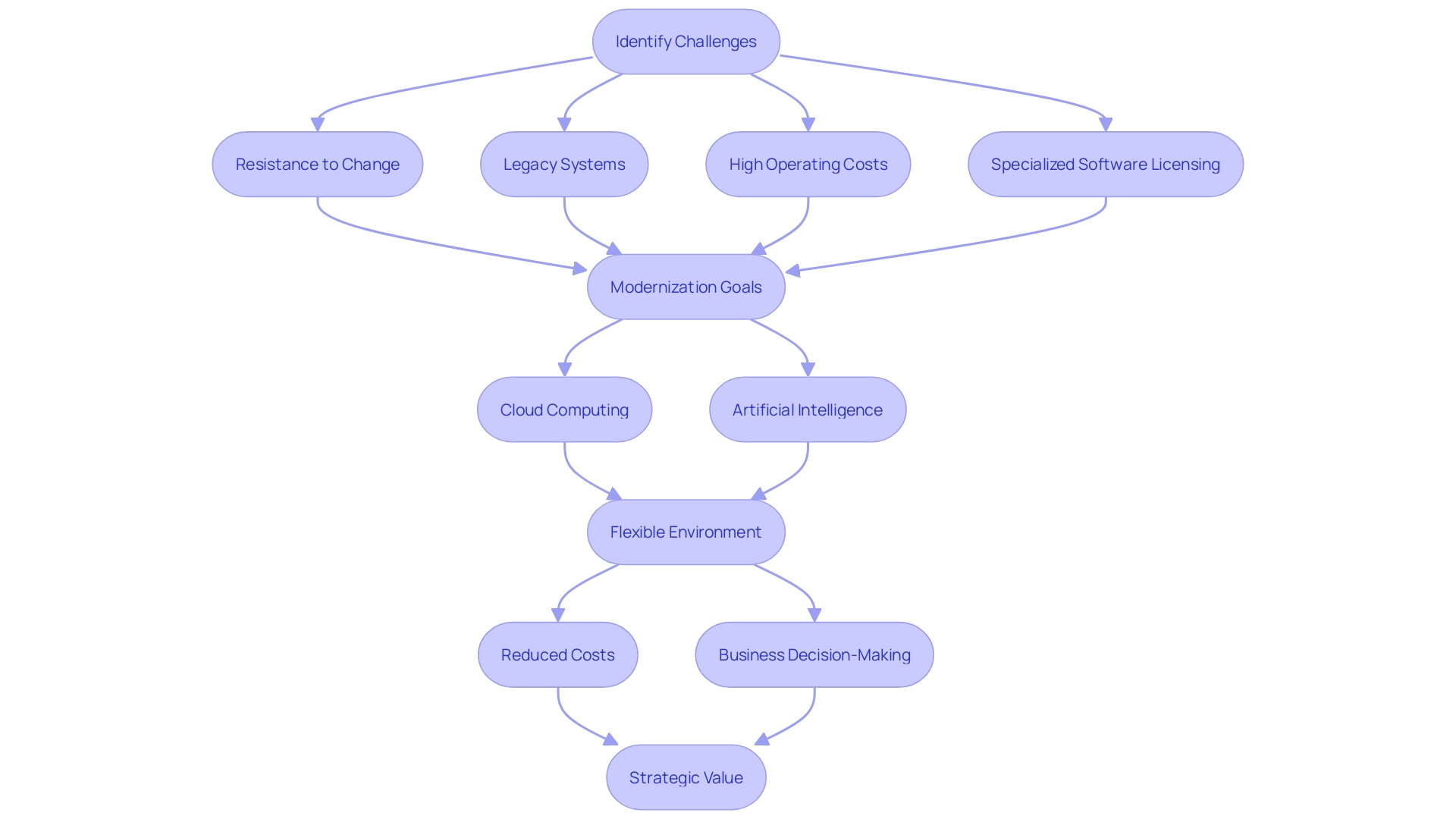Introduction
In today's fast-paced and increasingly complex business environment, finance transformation has become a critical imperative for organizations striving to enhance their financial management capabilities and maintain a competitive edge. This article delves into the core areas of focus in finance transformation, including process optimization, data analytics, technology integration, and regulatory compliance. By exploring the significant benefits of finance transformation consulting, it sheds light on how organizations can align financial operations with strategic goals to achieve agility and sustainable growth.
Furthermore, the article addresses the challenges and opportunities inherent in finance transformation, providing insights into best practices for successful implementation. This comprehensive guide is designed to equip CFOs and financial leaders with the knowledge and strategies needed to navigate the evolving financial landscape and drive long-term success.
Key Areas of Focus in Finance Transformation
Finance transformation is crucial for improving a company's management capabilities, covering several key areas such as process optimization, data analytics, technology integration, and regulatory compliance. By optimizing monetary procedures, entities can greatly lower expenses and enhance productivity. For example, M&T Bank's implementation of organization-wide Clean Code standards helped minimize application maintenance time and costs while ensuring software efficiency, reliability, and security.
Leveraging data analytics provides better decision-making and forecasting capabilities. Predictive analytics, for example, plays a vital role in interpreting monetary data to estimate future outcomes, assisting organizations in addressing complex business challenges and enhancing performance. This is particularly important as global and domestic economic conditions become increasingly complex and unpredictable.
Technology integration ensures that systems are aligned and capable of supporting strategic goals. The banking industry, driven by changing consumer habits and competitive pressures, is rapidly adopting new technologies to enhance customer experiences and meet stringent regulatory requirements. This adoption not only supports operational efficiency but also ensures the highest level of security for sensitive data and transactions.
Adherence to monetary regulations reduces risk and boosts credibility with stakeholders. The BFSI sector’s embrace of Big Data technologies exemplifies this, as it helps manage vast volumes of data in real-time, improving decision-making, risk management, and customer experience. North America, especially, dominates in the analytics market share due to its well-established players, increased adoption of Business Intelligence tools, and stringent regulatory compliance.
In general, monetary change via these essential sectors allows entities to sustain economic stability, back strategic objectives, and guarantee prolonged success in a progressively dynamic and regulated setting.

Benefits of Finance Transformation Consulting
Participating in monetary change advisory provides companies with a competitive advantage by greatly enhancing economic performance and operational effectiveness. These consultants leverage their extensive experience and industry best practices to expedite the transformation journey while providing an objective perspective critical for identifying gaps in current monetary practices. By aligning monetary operations with strategic goals, organizations can achieve a more agile finance function capable of swiftly responding to market changes and promoting sustainable growth.
A striking example is the banking sector's response to Environment, Sustainability, and Governance (ESG) trends. After the worldwide economic crisis, banks have encountered the dual challenge of monetary recalibration and aligning with ESG priorities. A holistic transformation of their operating models has become essential to navigate these challenges effectively. Moreover, companies that embrace comprehensive changes, including their 'back-end plumbing,' often see significant returns. For instance, a company that reshaped its portfolio saw a slight dip in growth but substantially increased returns by adopting new ways of working and culture.
The rising trend of integrated monetary solutions is also transforming the services value chain. This shift requires adjustment, rendering conventional models less applicable while improving cooperation among organizational functions like accounting, IT, and risk management. As highlighted by recent reports, banks could generate up to $7 trillion in value over the next five years by adopting bolder strategies and improving productivity, thus becoming more appealing to investors.
By incorporating these transformative practices, financial operations not only become more efficient but also contribute to broader societal and environmental objectives, underscoring the critical balance between innovation and responsibility in the evolving financial landscape.

Challenges and Opportunities in Finance Transformation
Finance transformation offers significant opportunities while presenting inherent challenges. Resistance to change and outdated legacy systems can obstruct progress. For instance, Lincoln Financial's transition to a cloud-based system aimed to reduce operating costs and modernize its environment, facing complexities due to the extensive modernization of 120 systems within two years. This shift also empowered business units to manage their technology consumption independently, aligning spending with their goals. Similarly, leveraging technologies like cloud computing and AI can drive innovation and overcome these obstacles. AI, as mentioned by Oracle's Matt Stirrup, is crucial in boosting strategic value across financial teams. By embracing these advancements, organizations can create more resilient financial infrastructures and future-proof their operations.

Best Practices for Successful Finance Transformation
Achieving successful financial change hinges on several key practices. Firstly, it’s essential to establish clear objectives and metrics to measure progress, ensuring all stakeholders are aligned with the change goals. Engaging stakeholders across the organization fosters buy-in and collaboration, which is critical for overcoming resistance and driving change. This approach was evident in TBC Bank's change, where transparency and stakeholder involvement led to renewed enthusiasm and better alignment on resource allocations.
Adopting a phased and iterative approach allows for flexibility and adjustments based on feedback and results. This approach, similar to the hub-and-spoke model, guarantees ongoing evaluation and flexible reactions to changing needs, improving the efficiency of the change.
Continuous training and support for finance personnel are vital to facilitate the transition to new processes and technologies. Training programs should be designed to upskill employees and ensure they are well-equipped to handle new systems and workflows. Finally, regularly reviewing and refining transformation initiatives is crucial to ensure they remain aligned with evolving business strategies and market conditions. This iterative process, as demonstrated by successful implementations, can significantly reduce time to market, enhance transparency, and improve overall organizational effectiveness.
Conclusion
Finance transformation stands as a pivotal strategy for organizations aiming to enhance their financial management capabilities and achieve sustainable growth. By focusing on key areas such as process optimization, data analytics, technology integration, and regulatory compliance, organizations can streamline operations, reduce costs, and improve decision-making. The integration of advanced technologies and data-driven insights not only fosters operational efficiency but also aligns financial practices with broader strategic objectives.
Engaging in finance transformation consulting offers organizations a competitive edge, enabling them to navigate the complexities of the financial landscape effectively. Consultants provide valuable expertise and an objective perspective, helping to identify gaps in existing practices and facilitating a more agile finance function. As demonstrated in the banking sector, adapting to emerging trends like ESG and embedded finance can yield significant returns, underscoring the importance of embracing comprehensive change.
While the journey of finance transformation is fraught with challenges, including resistance to change and outdated systems, there are ample opportunities for organizations willing to innovate. By leveraging technologies such as cloud computing and AI, organizations can overcome obstacles and build resilient financial infrastructures. Best practices, including clear objective setting, stakeholder engagement, and continuous training, are essential for ensuring successful implementation and maintaining alignment with evolving market conditions.
In conclusion, finance transformation is not merely a trend but a necessity for organizations aiming to thrive in a dynamic business environment. By adopting a proactive and strategic approach, organizations can unlock new levels of efficiency, agility, and sustainability, ultimately positioning themselves for long-term success.




